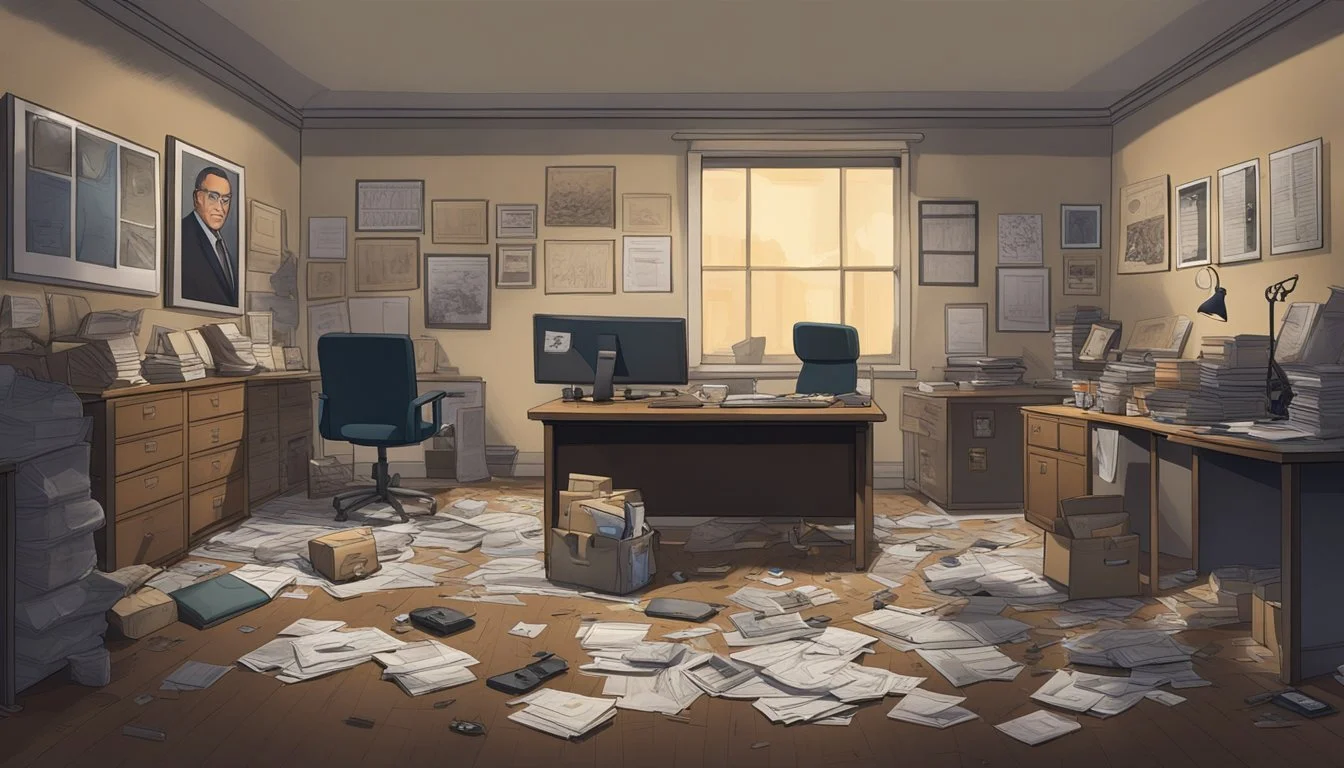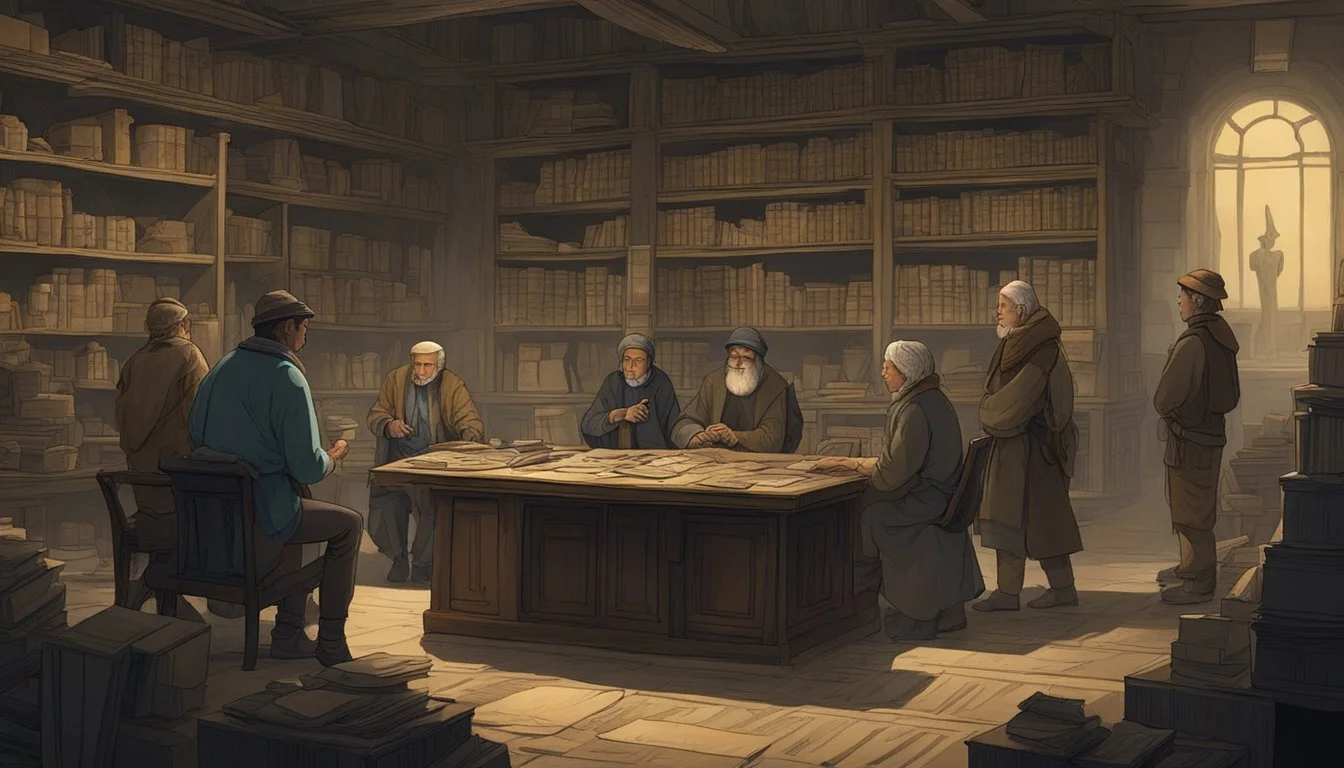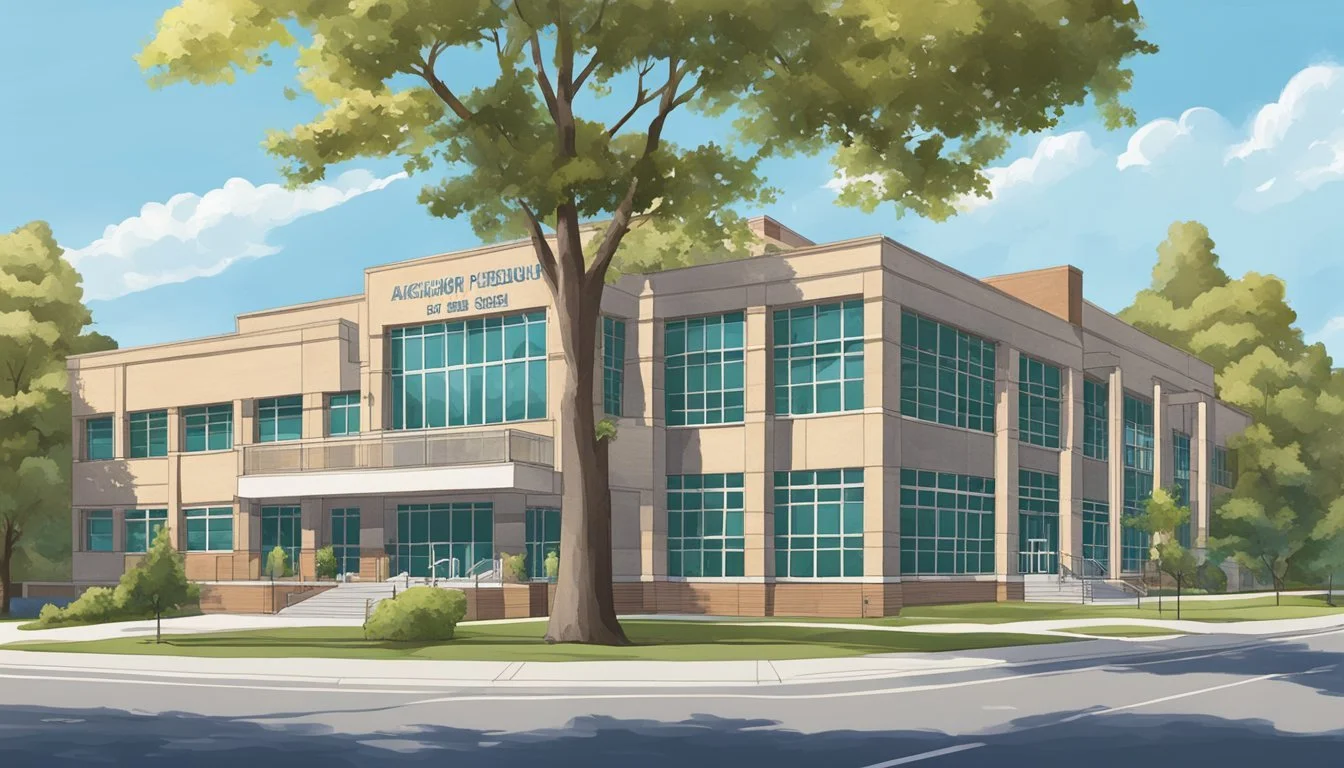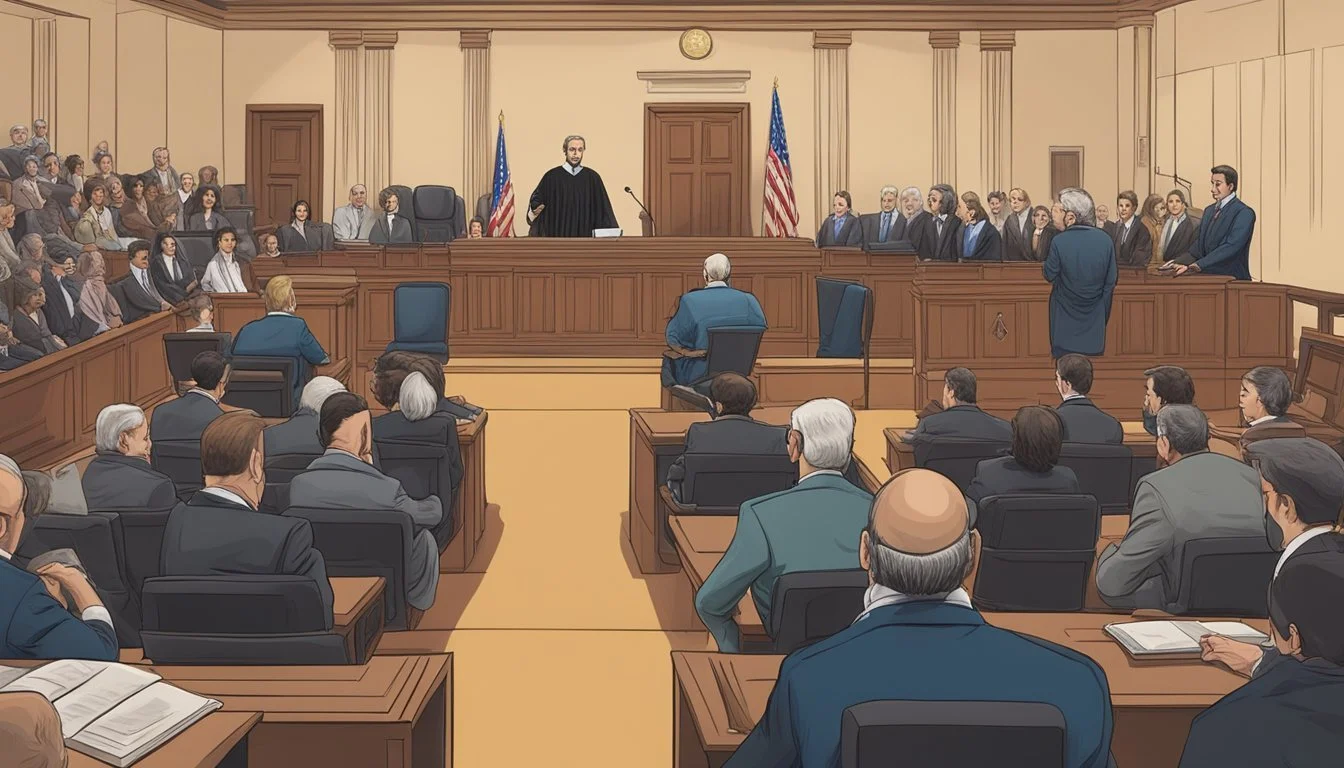Preserving History Through the Eyes of an Unsung Hero
Revealing the Untold Story of a Football Legend
"The Keepers" is a gripping Netflix documentary series that delves into the unsolved murder of Sister Catherine Cesnik in Baltimore in 1969. The seven-part series explores the potential connection between Sister Cesnik's death and allegations of sexual abuse at Archbishop Keough High School, where she taught.
The documentary suggests that Sister Cesnik may have been killed because she knew about sexual abuse perpetrated by Father Joseph Maskell, the school's chaplain and guidance counselor. Former students of Archbishop Keough High School, now grown women, share their harrowing experiences and theories about what happened to their beloved teacher.
"The Keepers" not only examines the murder investigation but also sheds light on the broader issue of sexual abuse within the Catholic Church. The series has garnered critical acclaim, earning an Emmy nomination for Outstanding Documentary Series and sparking renewed interest in Sister Cesnik's case.
Overview of 'The Keepers'
'The Keepers' is a compelling documentary series that delves into the unsolved murder of Sister Catherine Cesnik and its potential connection to alleged sexual abuse at a Baltimore Catholic high school. The series garnered significant attention for its investigative approach and sensitive handling of a complex, decades-old case.
Genre and Format
'The Keepers' is a true crime documentary series consisting of seven episodes. It premiered on Netflix in 2017, joining the platform's growing catalog of investigative content. The series blends archival footage, interviews with survivors, and on-camera investigations by former students of Sister Cesnik. It explores the 1969 murder case and its possible links to broader issues of institutional abuse within the Catholic Church.
Developed by Ryan White
Ryan White directed and produced 'The Keepers', bringing his documentary filmmaking expertise to the project. White's approach focused on giving voice to the survivors and amateur investigators who had been pursuing the case for decades. He crafted a narrative that balanced the criminal investigation with the personal stories of those affected by the events at Archbishop Keough High School.
White's direction allowed the series to maintain a respectful tone while addressing deeply disturbing subject matter. His work on 'The Keepers' built on his previous experience with documentaries that tackled complex social issues.
Critical Reception and Ratings
'The Keepers' received widespread critical acclaim upon its release. Critics praised the series for its thorough investigation, compelling storytelling, and sensitive treatment of survivors' experiences. The documentary holds a 97% approval rating on Rotten Tomatoes, reflecting its positive reception among reviewers.
Viewers and critics alike commended the series for shedding light on a long-forgotten case and giving a platform to those seeking justice. The show's ability to maintain suspense while dealing with heavy themes contributed to its success. 'The Keepers' was nominated for an Emmy Award for Outstanding Documentary Series, further cementing its status as a standout in the true crime genre.
Sister Catherine Cesnik's Legacy
Sister Catherine Cesnik's life and tragic death left an indelible mark on her community and beyond. Her story has sparked renewed interest in seeking justice and uncovering the truth surrounding her murder.
Catherine Cesnik's Impact
Sister Catherine Cesnik was a beloved teacher at Archbishop Keough High School in Baltimore. Her dedication to education and compassion for her students made her a respected figure in the community. Cesnik's unsolved murder in 1969 shocked those who knew her and left a lasting impact on her former students.
The Netflix documentary series "The Keepers" brought renewed attention to her case. This led to increased public interest and pressure on law enforcement to reinvestigate the decades-old crime. Cesnik's legacy now extends beyond her teaching career, as her story has become a catalyst for discussions about justice, accountability, and institutional responsibility.
Notable People in Catherine Cesnik's Life
Gerry Koob, a former priest, was a close friend of Sister Catherine Cesnik. He played a significant role in the initial search for her when she went missing and has remained vocal about seeking justice for her murder.
Marilyn Cesnik Radakovic, Catherine's sister, has been an advocate for keeping her sister's case in the public eye. She has participated in interviews and documentaries, sharing personal memories of Catherine and expressing her family's ongoing quest for answers.
Sister Russell Phillips, Catherine's roommate and fellow nun, was one of the last people to see her alive on November 7, 1969. Her testimony has been crucial in piecing together the events leading up to Cesnik's disappearance.
Chronicle of the Crime
The unsolved murder of Sister Catherine Cesnik in 1969 shocked Baltimore and remains a haunting cold case. Key figures and events surrounding her disappearance and death raise troubling questions about potential cover-ups and abuse within the Catholic Church.
Case Overview
Sister Catherine Cesnik, a 26-year-old nun and teacher, vanished on November 7, 1969, after running errands in Baltimore. Her body was discovered on January 3, 1970, in a remote area of Lansdowne.
The case gripped the community, as Cesnik was beloved by her students at Archbishop Keough High School. Her murder coincided with allegations of sexual abuse by priests at the school, particularly Father Joseph Maskell.
Investigators initially focused on Cesnik's fiancé, but the case went cold. Decades later, renewed interest emerged due to potential connections between her death and the abuse scandal.
Investigation and Key Findings
The Baltimore County Police Department led the initial investigation. Key findings included:
Cesnik's car found near her apartment the night she disappeared
Her body showed signs of blunt force trauma
Potential links to other unsolved murders in the area
In the 1990s, former students came forward with abuse allegations against Father Maskell. They claimed Cesnik may have been silenced for knowing about the abuse.
New suspects emerged, including Billy Schmidt and Edgar Davidson. However, no charges were ever filed due to lack of evidence.
Challenges in the Case
Several factors complicated the investigation:
Limited forensic technology in 1969
Passage of time and loss of physical evidence
Deceased potential witnesses and suspects
Alleged obstruction by church officials
The Baltimore Police Department faced criticism for not thoroughly investigating the abuse allegations at the time. Some speculate about a possible cover-up involving church and law enforcement.
Efforts to solve the case continue, with former students and amateur sleuths pursuing leads. The murder of Sister Catherine Cesnik remains one of Baltimore's most infamous unsolved crimes.
Key Figures and Witnesses
The Keepers documentary centers around several key individuals who played crucial roles in uncovering the truth about Sister Cathy Cesnik's murder and the alleged abuse at Archbishop Keough High School. These figures provided vital testimony and pursued leads over decades.
Jane Doe and Jane Roe
Jean Hargadon Wehner, known as "Jane Doe", came forward with allegations of sexual abuse by Father Joseph Maskell at Archbishop Keough High School. She claimed Maskell showed her Sister Cathy's body as a threat. Teresa Lancaster, "Jane Roe", also accused Maskell of abuse and joined a lawsuit against him.
Both women's testimonies were crucial in exposing the alleged crimes at the school. Their courage in speaking out helped bring attention to the case decades after the events occurred.
Other Central Personalities
Gemma Hoskins and Abbie Schaub, former students of Sister Cathy, became amateur investigators. They dedicated years to uncovering information about the murder and abuse allegations.
Tom Nugent, a journalist, extensively researched and wrote about the case. His articles helped keep public interest alive.
Father Joseph Maskell was the primary accused abuser. He denied all allegations until his death in 2001.
Edgar Davidson was identified as a potential suspect in Sister Cathy's murder. His connection to the case remains unclear.
Bob Erlandson, a former Baltimore Sun reporter, covered the story in its early stages.
Role of Archbishop Keough High School
Archbishop Keough High School in Baltimore, Maryland played a central role in the events depicted in "The Keepers" documentary. The all-girls Catholic school was the workplace of Sister Catherine Cesnik, whose unsolved murder is a key focus of the series.
The school became notorious for allegations of widespread sexual abuse committed against students. Father A. Joseph Maskell, the school chaplain, was accused of sexually abusing numerous girls at Keough during the late 1960s and early 1970s.
Several former students came forward with accounts of abuse after watching "The Keepers." These women reported that they had repressed memories of their experiences at Keough, which resurfaced after viewing the documentary.
The Archdiocese of Baltimore, which oversaw Archbishop Keough High School, faced criticism for its handling of abuse allegations. Questions arose about the Catholic Church's response to reports of misconduct by clergy members.
Archbishop Keough High School closed in 1988, merging with another local Catholic school. However, its legacy continues through the ongoing investigation into Sister Cathy's murder and the pursuit of justice for abuse survivors.
Cultural and Social Impact
The Keeper documentary sparked intense public discourse and reshaped perceptions of true crime storytelling. Its raw portrayal of real-life terror and meticulous investigative approach captivated audiences while raising important questions about justice and media ethics.
Public Response and Social Media
The film ignited passionate discussions across social media platforms. Viewers shared theories, debated evidence, and expressed empathy for the victims' families. Many praised the documentary's sensitive handling of the subject matter, while others criticized potential exploitation of tragedy.
Amateur sleuths emerged online, scrutinizing case details and forming online communities dedicated to solving unanswered questions. This phenomenon highlighted the public's fascination with true crime and desire for closure.
The documentary's impact extended beyond entertainment, prompting calls for justice system reforms and increased support for victims' rights organizations.
Contributions to True Crime Genre
The Keeper set a new standard for true crime documentaries. Its innovative storytelling techniques and ethical approach to sensitive material influenced subsequent productions in the genre.
The film's success demonstrated audience appetite for in-depth, well-researched true crime content. This led to increased investment in similar projects across various media platforms.
By focusing on the human impact of crime rather than sensationalizing violence, The Keeper encouraged a more thoughtful and empathetic approach to true crime storytelling. It challenged creators to consider the ethical implications of their work and prioritize respect for victims and their families.
Seeking Justice and Closure
Former students and victims' families continue to pursue answers and accountability in Sister Catherine Cesnik's case. Their efforts face legal challenges and bureaucratic obstacles, but have kept her memory and legacy alive.
Legal Efforts and Obstacles
Survivors and victims' families have encountered significant hurdles in their quest for justice. The statute of limitations has prevented many from filing lawsuits against alleged abusers and those who may have covered up crimes. Frustrating interactions with law enforcement have led some to question the thoroughness of past investigations.
Legislative battles with the archdiocese have further complicated attempts to extend the statute of limitations for abuse cases. Despite these challenges, advocacy groups continue to push for legal reforms that would allow more victims to seek justice through the courts.
Legacy of Sister Catherine Cesnik
Sister Catherine's unsolved murder continues to resonate decades later. Her former students, now in their sixties, remain dedicated to uncovering the truth about her death and exposing any potential cover-up. Their efforts have kept public attention focused on the case and broader issues of abuse within the Catholic Church.
The documentary series "The Keepers" brought renewed interest to Sister Catherine's story. It highlighted her impact as an educator and explored theories connecting her murder to alleged abuse at Archbishop Keough High School. The series also showcased the determination of those seeking closure and justice in her name.






